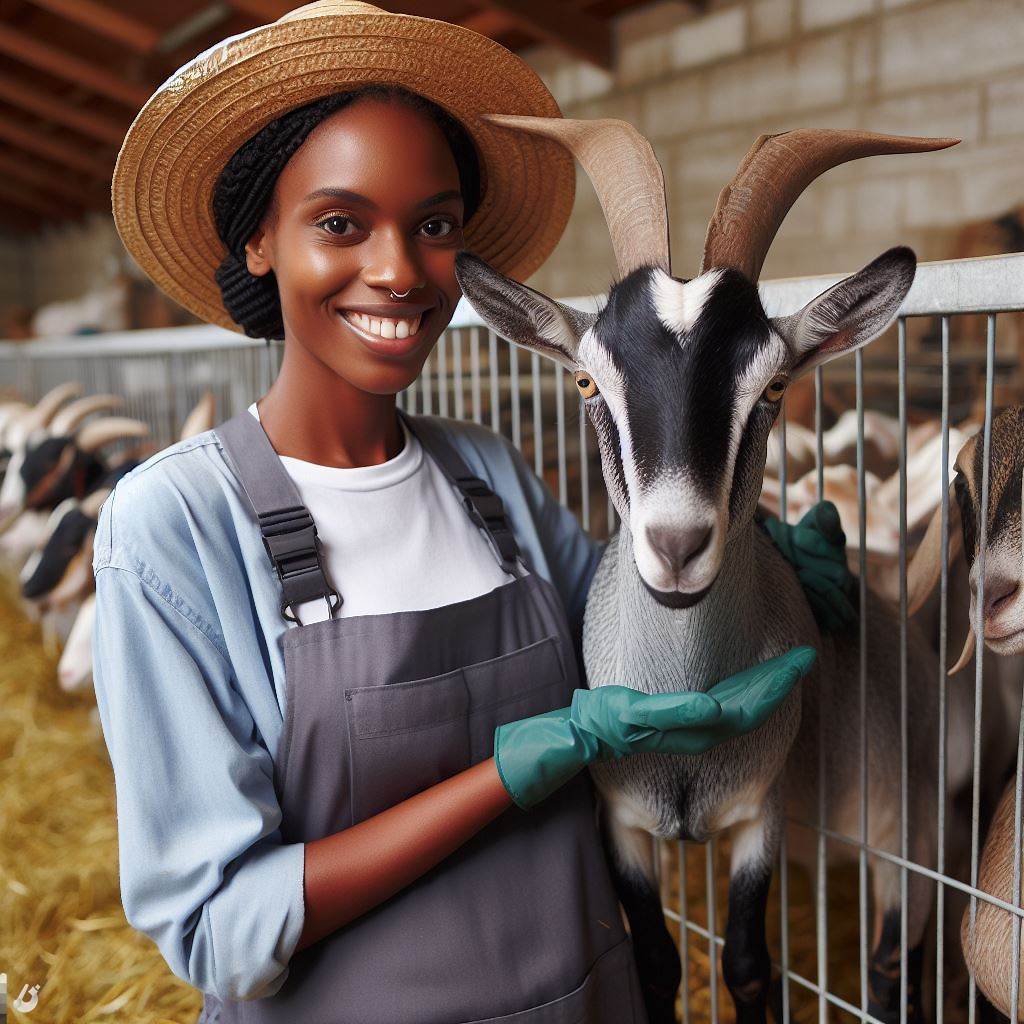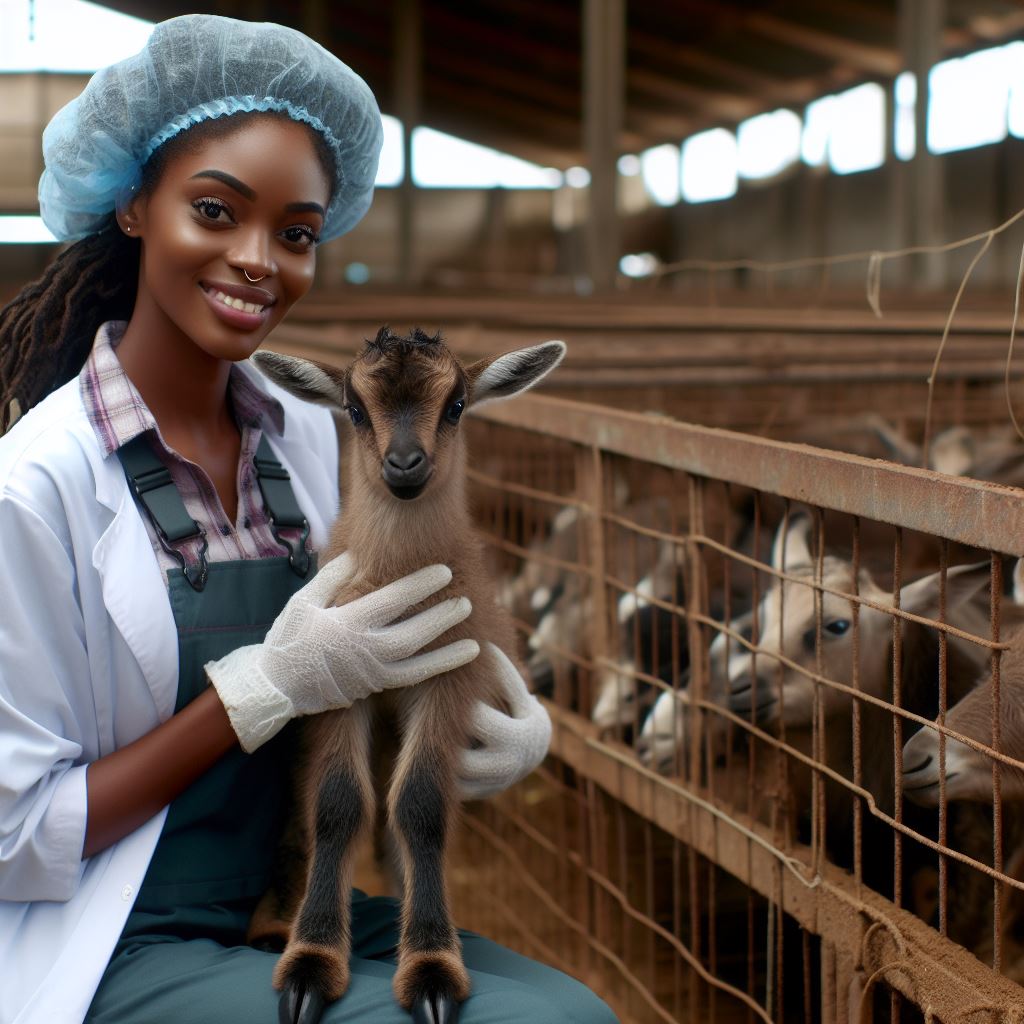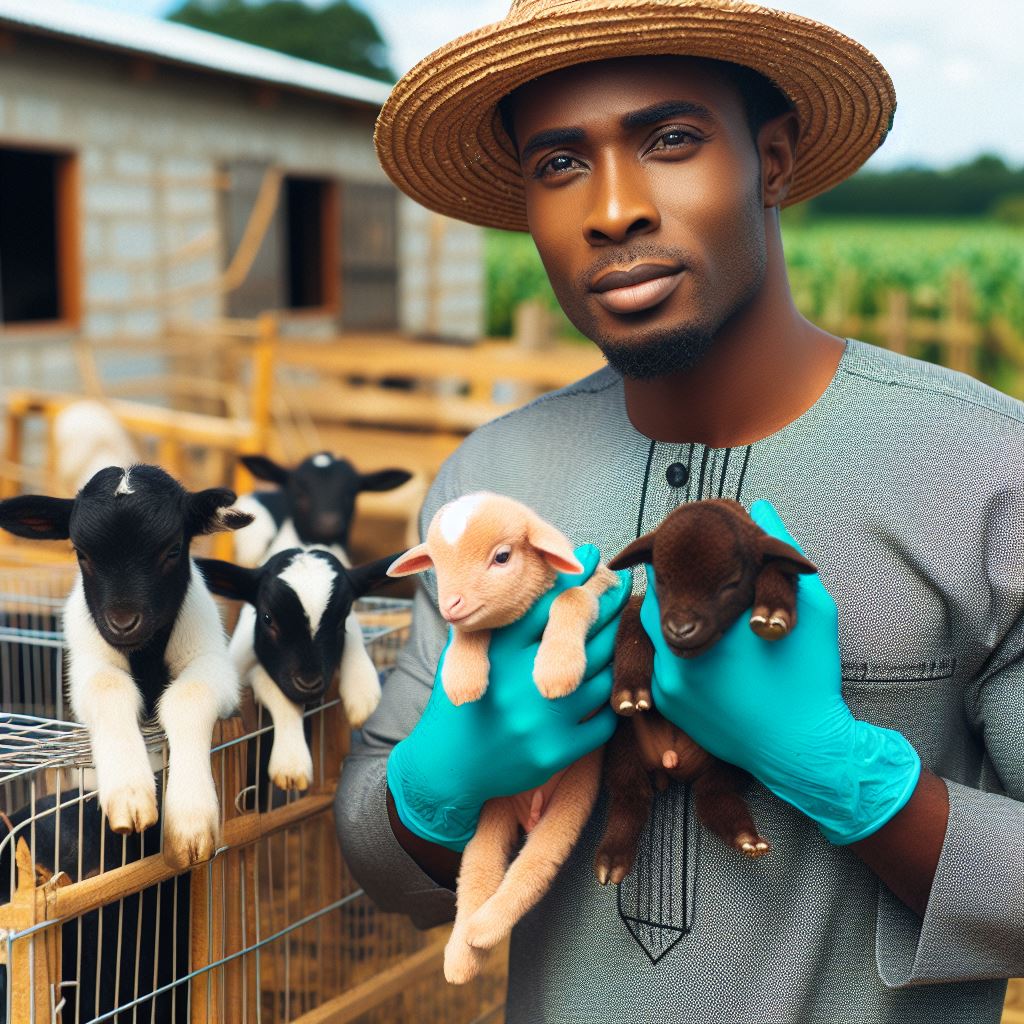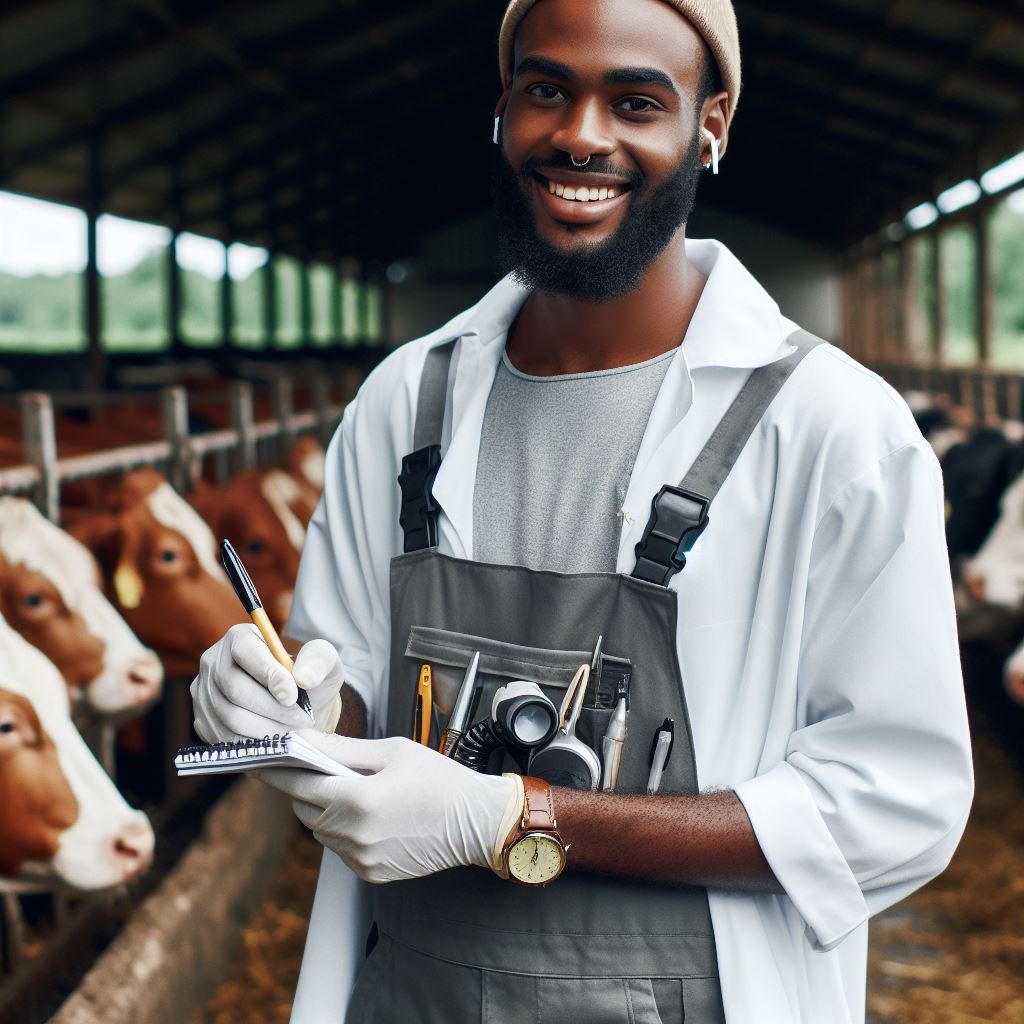Introduction
Field Trips and Practical Experiences in Nigerian Animal Science: A field trip refers to an educational excursion that takes students out of the traditional classroom setting to gain practical experiences in Nigerian animal science.
It involves visiting farms, research institutions, and other locations related to the field.
Hands-on learning is crucial in animal science as it allows students to apply theoretical knowledge to real-life situations and develop practical skills.
Nigeria’s animal science industry plays a significant role in the country’s economy and food security.
It encompasses various sectors, including livestock production, animal breeding, feed production, and veterinary services.
The industry faces challenges such as limited resources, inadequate infrastructure, and low adoption of modern technologies.
However, it presents promising opportunities for sustainable development, innovative research, and improving livestock productivity.
Field trips and practical experiences provide students with a deeper understanding of the industry’s challenges and potentials.
They allow students to interact with professionals, observe animal handling and management practices, and gain exposure to new technologies and research methods.
Moreover, these experiences enhance students’ critical thinking, problem-solving, and decision-making skills.
By actively engaging in practical activities, students develop a passion for animal science and are better prepared for future careers in the field.
Benefits of Field Trips and Practical Experiences in Nigerian Animal Science
Enhancing theoretical knowledge through practical application
Field trips and practical experiences provide the opportunity for students to apply their theoretical knowledge in real-life situations.
- Students can see firsthand how concepts they learned in the classroom are implemented in the field.
- This practical application helps solidify their understanding and retention of the subject matter.
- It bridges the gap between theory and practice, making the topic more tangible and relatable.
Exposure to different animal management techniques
Field trips expose students to a wide range of animal management techniques used in Nigerian animal science.
- Students can observe various methods of animal handling, feeding, and housing.
- This exposure helps them understand the different approaches and their effectiveness.
- They can see the impact that these techniques have on animal health and productivity.
Developing problem-solving skills
Field trips and practical experiences in Nigerian animal science provide opportunities for students to develop problem-solving skills.
- Students encounter real-life challenges and have to find solutions on the spot.
- This fosters critical thinking and analytical skills.
- They learn to adapt and make decisions in dynamic and unpredictable situations.
Gaining real-life experiences in animal handling and care
Field trips and practical experiences offer students the chance to gain hands-on experiences in animal handling and care.
- They can participate in activities such as milking, grooming, and administering medications.
- This hands-on experience enhances their understanding of animal behavior and welfare.
- It prepares them for future careers in animal science and related fields.
In fact, field trips and practical experiences in Nigerian animal science offer numerous benefits to students.
They enhance theoretical knowledge through practical application, expose students to different animal management techniques, develop problem-solving skills, and provide real-life experiences in animal handling and care.
These experiences are invaluable in preparing students for successful careers in the field and improving the overall quality of animal science education in Nigeria.
Read: Career Prospects: Graduating in Animal Nutrition from Nigeria
Prominent Field Trip Destinations in Nigerian Animal Science
Field trips and practical experiences play a vital role in the education of students studying animal science in Nigeria.
These experiences provide hands-on learning opportunities that reinforce classroom teachings and expose students to real-world situations in the field.
National Veterinary Research Institute, Vom
One prominent field trip destination in Nigerian animal science is the National Veterinary Research Institute (NVRI) in Vom.
The NVRI is known for its state-of-the-art research and training facilities. Students have the opportunity to visit and explore these facilities, gaining practical knowledge in various areas of veterinary medicine.
They can witness ongoing research projects, interact with professionals in the field, and even participate in hands-on activities like animal handling and diagnostic procedures.
These experiences greatly enhance their understanding of veterinary science and its application in Nigeria.
National Animal Production Research Institute, Shika
Another notable field trip destination is the National Animal Production Research Institute (NAPRI) in Shika. NAPRI focuses on research and development in livestock production.
During the field trip, students engage in discussions with experts who provide insights into the institute’s research focus and the latest advancements in livestock production.
They also participate in practical activities such as animal breeding and nutrition experiments.
These experiences enable students to develop practical skills and gain a deeper understanding of the challenges and opportunities in the Nigerian livestock industry.
Obafemi Awolowo University, Ile-Ife
Obafemi Awolowo University in Ile-Ife is also a popular destination for animal science field trips. The university’s Department of Animal Science offers a comprehensive overview of the discipline.
Students have a chance to visit the university’s animal production farms, where they observe and learn about different livestock species and their management.
Additionally, they participate in practical exercises related to animal nutrition and health.
These hands-on experiences allow students to apply their theoretical knowledge and develop essential skills for a career in animal science.
Field trips and practical experiences provide Nigerian animal science students with a holistic learning experience.
They bridge the gap between theoretical knowledge and real-world application.
By visiting prominent institutions like the NVRI, NAPRI, and Obafemi Awolowo University, students gain exposure to cutting-edge research, innovative practices, and the challenges faced by the Nigerian animal science industry.
These experiences shape them into well-rounded professionals ready to contribute to the development of the country’s agriculture and livestock sector.
In short, field trips and practical experiences in Nigerian animal science are essential for the education and professional development of students.
Institutions like the NVRI, NAPRI, and Obafemi Awolowo University offer valuable learning opportunities that enhance students’ understanding of veterinary medicine, livestock production, and animal science in general.
These experiences empower students with practical skills and equip them for future careers in the field.
Transform Your Career with Expert Guidance
Get personalized mentorship consulting that’s tailored to your unique path. Our expert advice is actionable and exclusive.
Get StartedRead: Postgraduate Opportunities in Animal Science in Nigeria

Practical Experiences in Nigerian Animal Science
Animal handling and care workshops
Attending workshops that focus on animal handling and care is an essential part of learning animal science.
These workshops provide hands-on experiences to students, allowing them to develop the necessary skills and knowledge.
During these workshops, students learn about the proper techniques for handling different animals, including safety precautions, restraint methods, and basic care practices.
They gain practical experience in tasks such as feeding, grooming, vaccinating, and administering medication to animals.
The workshops also cover topics like recognizing signs of illness or distress in animals, emergency first aid, and behavioral observation.
Participating in these workshops enables students to understand the importance of animal welfare and learn how to maintain healthy and stress-free environments for them.
Internships at livestock farms and veterinary clinics
Internships provide students with the opportunity to apply their theoretical knowledge in real-life animal science settings.
Nigerian animal science students can benefit greatly from internships at livestock farms and veterinary clinics.
During these internships, students have the chance to work closely with professionals in the industry and gain practical experience in various aspects of animal management.
They may assist in performing routine tasks such as feeding, milking, calving, or assisting with surgeries and treatments under supervision.
Internships also allow students to observe and participate in activities related to farm management, such as record-keeping and monitoring animal health.
These hands-on experiences help students develop critical thinking skills, problem-solving abilities, and effective communication with both animals and humans.
Involvement in research projects related to animal science
Engaging in research projects related to animal science provides students with a deeper understanding of the field and fosters their analytical and scientific reasoning skills.
Students can assist in ongoing research projects conducted by their university’s animal science department or other research institutions.
This involvement exposes them to the latest advancements and technologies in animal science, such as genomics, nutrition, reproduction, and animal behavior.
By actively participating in research, students learn how to design experiments, collect and analyze data, and draw meaningful conclusions.
Research projects may also require students to present their findings at conferences or publish their work in scientific journals, enhancing their professional development and visibility in the field.
Practicing animal breeding and reproductive techniques
Practical experiences in animal breeding and reproductive techniques are crucial for students pursuing a career in animal science.
Nigerian animal science programs often provide students with opportunities to practice artificial insemination, embryo transfer, and pregnancy diagnosis.
These hands-on experiences expose students to techniques used in breeding programs, improving their understanding of genetics and reproductive management.
Additionally, students may have the chance to work with advanced technologies such as ultrasound, semen analysis, and hormone manipulation.
Acquiring these skills equips students with the ability to optimize breeding outcomes, increase reproductive efficiency, and contribute to the genetic improvement of livestock.
In essence, practical experiences are integral to the education and professional development of Nigerian animal science students.
Animal handling workshops, internships, involvement in research projects, and practicing reproductive techniques provide hands-on learning opportunities that shape well-rounded graduates ready to tackle real-world challenges in the field.
Read: Top Universities in Nigeria Offering Animal Nutrition Courses
Challenges and Opportunities in Field Trips and Practical Experiences in Nigerian Animal Science
Limited availability of funding for field trips and practical experiences
- Lack of financial resources hinders the organization and execution of field trips and practical experiences.
- Funding constraints limit the ability to provide hands-on learning opportunities for students.
- Insufficient funds contribute to the inadequate provision of necessary equipment and supplies.
- Limited access to funds prevents educational institutions from organizing regular and comprehensive field trips.
- The lack of financial support affects the quality and effectiveness of practical experiences in animal science.
Lack of awareness and coordination among educational institutions and industry stakeholders
- Educational institutions often lack awareness regarding the potential benefits of field trips and practical experiences.
- Inadequate coordination between universities, colleges, and industry stakeholders hampers the planning and execution of such activities.
- Limited interaction between students and industry professionals inhibits the exchange of knowledge and practical skills.
- The absence of collaborative efforts between academia and industry negatively impacts the overall learning experience.
- Insufficient communication and networking hinder the identification of opportunities for practical experiences in animal science.
Potential solutions and collaborations to overcome these challenges
- Establishing partnerships between educational institutions and industry stakeholders to secure funding for field trips and practical experiences.
- Creating awareness campaigns to educate educational institutions about the importance and benefits of hands-on learning experiences.
- Implementing policies that encourage coordination and collaboration among academia, industry, and relevant government agencies.
- Setting up internship programs and exchange platforms to facilitate interactions between students and professionals in the animal science industry.
- Forming networks and associations that bridge the gap between educational institutions and industry stakeholders for better resource allocation.
Recommendations for enhancing field trips and practical experiences in Nigerian animal science
- Increase funding allocation for field trips and practical experiences to ensure their regular organization and sustainability.
- Encourage universities and colleges to prioritize hands-on learning by integrating it into their curriculum.
- Foster collaborations between academia and industry to develop practical training programs tailored to the industry’s needs.
- Promote mentorship programs that connect students with professionals to enhance practical learning opportunities.
- Establish monitoring and evaluation frameworks to assess the impact and effectiveness of field trips and practical experiences.
Read: Key Research Areas in Nigerian Animal Science Departments
Conclusion
Field trips and practical experiences are essential in Nigerian animal science education as they provide real-world applications and hands-on learning opportunities for students to deepen their understanding.
Students and educators should actively engage in field trips and practical experiences to enhance their knowledge and skills in animal science. It allows for a more holistic and comprehensive learning experience.
The future of field trips and practical experiences in Nigerian animal science looks promising.
With advancements in technology and the increasing recognition of their value, more opportunities for such experiences will be available, leading to enhanced education and research in the field.




